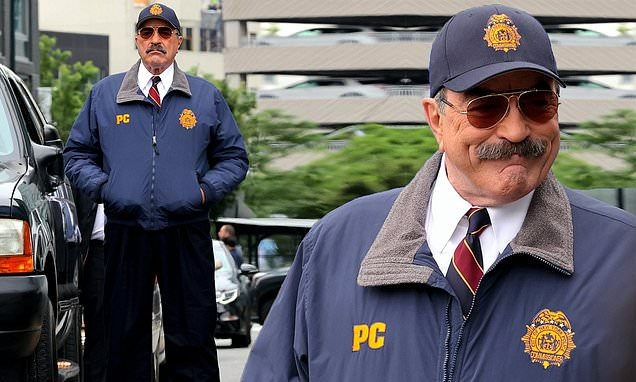
Frank Reagan, portrayed by Tom Selleck, stands as the cornerstone of CBS’s long-running series Blue Bloods. As the NYPD Commissioner, Frank embodies the complexities of law enforcement, family loyalty, and moral integrity. Over the course of the show’s 14 seasons, his character has experienced significant growth, shaped by both personal and professional challenges. This article explores the evolution of Frank Reagan, highlighting key moments that define his role and the impact he has had on the series.
A Strong Foundation: The Early Seasons
From the outset, Frank Reagan is established as a dedicated and principled leader. In the early seasons, we see him grappling with the demands of his job while trying to maintain a close-knit family dynamic. His commitment to justice is evident as he navigates the complexities of police work, often balancing the needs of the department with the moral implications of his decisions.
One of the defining moments in Frank’s early character development occurs in Season 1, where he faces ethical dilemmas that test his leadership skills. For instance, when forced to choose between political pressure and doing what is right, Frank consistently opts for integrity, setting the tone for his character throughout the series.
Navigating Family Dynamics
As Blue Bloods progresses, the audience witnesses the evolution of Frank’s relationships with his family members. His interactions with his children—Danny, Erin, and Jamie—highlight the challenges of balancing family loyalty with professional responsibilities. Frank’s role as a father is multifaceted; he is both a mentor and a disciplinarian, instilling values of justice and duty while also grappling with the consequences of their careers in law enforcement.
Significant family moments, such as the Reagan family dinners, provide insight into Frank’s character. These scenes not only showcase the close bond among the family members but also reveal Frank’s attempts to instill a sense of duty and honor in his children. His unwavering support for their choices, even when they conflict with his own views, illustrates his growth as a father.
Confronting Personal Loss
Throughout the series, Frank faces personal tragedies that further shape his character. The loss of his son, Joe, in the line of duty is a pivotal moment that profoundly impacts Frank’s outlook on policing and family. This loss serves as a catalyst for his actions and decisions, driving him to ensure that his other children are protected, both physically and emotionally.
In Season 6, Frank’s vulnerability is laid bare as he grapples with the grief of losing Joe. This storyline allows viewers to see a more human side of Frank, illustrating that even a strong leader can be affected by personal loss. His struggles with guilt and responsibility highlight the emotional weight that comes with being a police commissioner and a father.
Professional Challenges and Ethical Dilemmas
As the series progresses, Frank encounters various professional challenges that test his leadership abilities. He often faces political pressure from city officials, public scrutiny, and the realities of modern policing. These challenges force Frank to navigate the murky waters of ethics and integrity, reinforcing his commitment to doing what is right, even when it’s unpopular.
In Season 9, Frank’s handling of a controversial police shooting becomes a focal point, allowing the show to explore themes of accountability and justice. His decision to stand firm in the face of public outcry highlights his unwavering principles and dedication to the job, even at the cost of his popularity.
A Legacy of Integrity
As Blue Bloods approaches its conclusion, Frank Reagan’s character has become synonymous with integrity, resilience, and family values. Tom Selleck’s portrayal has brought depth to the character, making Frank a relatable and admirable figure in the world of law enforcement. His evolution from a principled leader to a father grappling with loss and responsibility is a testament to the complexities of his role.
In the end, Frank Reagan is not just the NYPD Commissioner; he is a father, a mentor, and a symbol of the values that define the Reagan family. His journey throughout the series reflects the challenges faced by those in law enforcement and the importance of family and integrity in overcoming them. As fans continue to follow his story, Frank’s legacy will undoubtedly endure, shaping the narrative of Blue Bloods for years to come.
